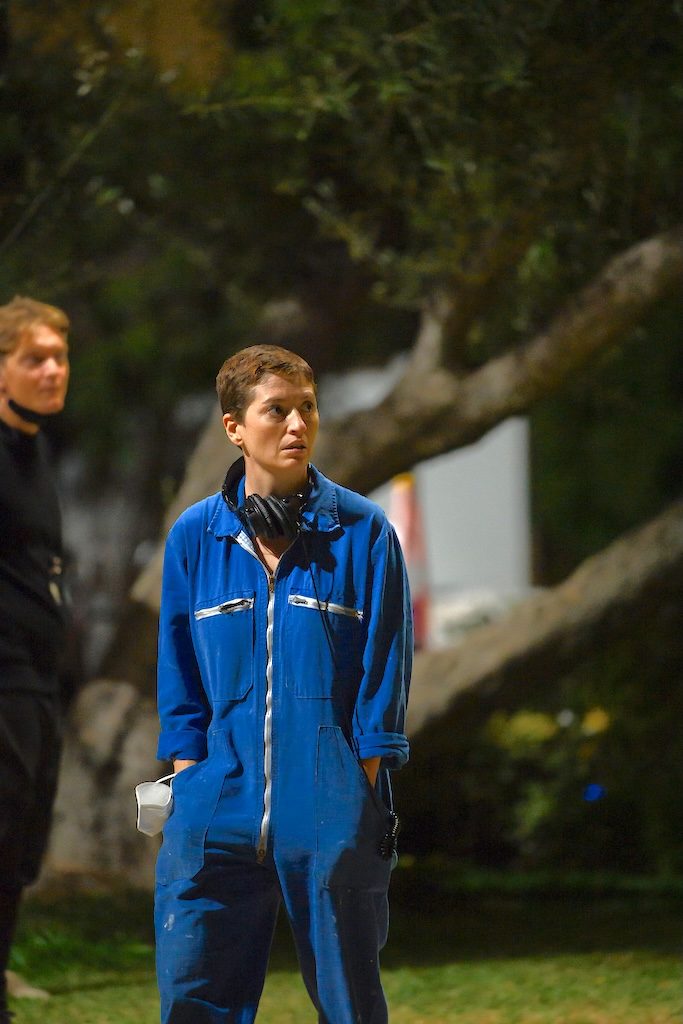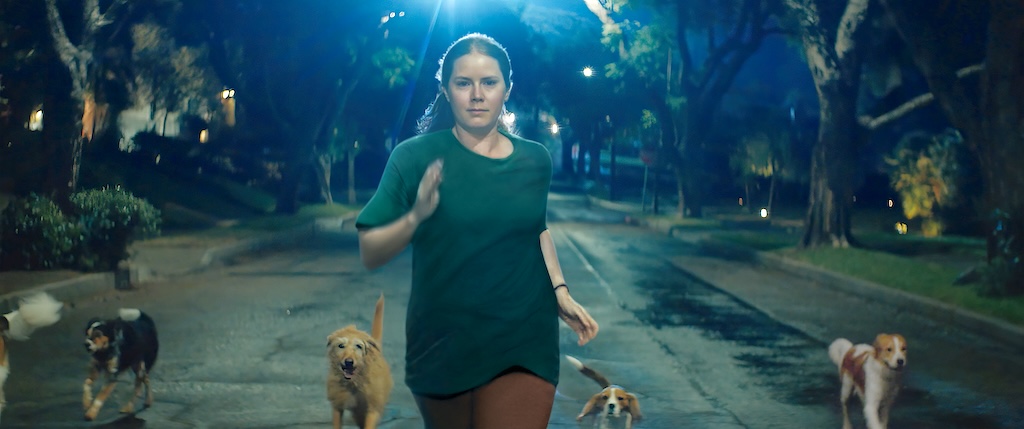“I always viewed Nightbitch as the antidote to Instagram culture where motherhood is curated, and everything looks perfect and impossible – and it makes you feel like sh*t about yourself”
Nobody’s ever fully-prepared for motherhood no matter how many books they read or advice they receive. And once you do become a mother, it comes with many surprises and upheaval.
Based on Rachel Yoder’s 2021 acclaimed novel of the same name, Nightbitch tells the “non-cute” version of being a stay at home mom, filmmaker Marielle Heller adapted the book, described as a “modern feminist fable” into a film starring Amy Adams as the said mother and Scott McNairy as her husband. Heller shares her thoughts about the novel that compelled her into making it into a movie. The characters are simply referred to as Mother, Father, and Son to depict their roles in the family.
“I’ve been a parent now for almost ten years, and the experience of becoming a mother was so different than I had ever anticipated,” confesses Heller. She adores her kids, but motherhood made her experience the “grief of losing myself,” she explains. She felt very isolated and unprepared.

Marielle Heller. Photo by Anne Marie Fox/ Searchlight Pictures
“When I read Rachel Yoder’s book, it made me feel seen in that experience,” Heller points out. “Maybe I wasn’t alone in having that experience?” The film also touches on themes of transformation, ageing, and the anger of repetitive tasks. Nightbitch is about reclaiming those parts of yourself that make you someone beyond a mother.
Phases Of Adapting A Novel
Heller describes the adaptation process as a long and complicated process. She believes that adaptation isn’t a simple translation process across formats. In getting the know the source material really well, the screenplay is essentially building the story from scratch.
The first phase is getting to know the material inside and out, so I feel like I could have written it myself
The second phase is the removal of some source material to infuse her own life experiences into the story to make something new. Firstly she decides what she loves about the book and what elements she wrestles with.
Although there are many aspects of the book Heller loves, not everything is cinematic and works in a movie. She also decided what parts she wanted to focus on in her film and left the rest behind.
Marielle Heller describes the process of merging her personal experiences with the book as “lego blocks” where you create something new from them.
Nightbitch rolls out as a slice of life drama, with moments of real sadness, pitted against a few belly laughs. At times it becomes ungrounded and surreal particularly when Mother transforms into her canine spirit animal. She even grows a tail.
Marielle Heller believes that real life isn’t neatly organized as either a drama or comedy. “Real life is all of these things matched up together. And sometimes I think the best laughs come from a really sad situation.”
Nightbitch represents the mother’s rage and parts that are not integrated within herself
Who’s To Blame? Mother Or Father
Nightbitch is inevitably told from the mother’s perspective, but the filmmaker is careful not to lay blame on the father for Mother’s distress. It just happens. Father is always a loving, caring provider for his family.
“I’m making a comment based on my own experience, even in a very equal marriage, where you’ve been conscientious about gender roles and choosing to not live in a certain way, that sometimes having a kid, you unexpectedly fall into a division of labor that feels unfair or gender-biased.”
The intention of Nightbitch is to consciously undo “some of those expectations that creep in without us meaning to.” Both mother and father have different life experiences so it’s difficult for one to fully understand what the other is feeling. However, by expressing these feelings in the open, “partners can have better understanding and better empathy.”
I Feel Invisible
A major theme that Heller tackles in Nightbitch is the loss of personhood and individuality that comes with the intense time requirements of motherhood.
“The kale salad scene in the restaurant encapsulates the idea of feeling invisible,” adds Keller. “I think a lot of people can relate to that, particularly women as we age. There is a feeling for a lot of us of suddenly feeling invisible and that nobody’s listening to what we have to say.”
She reflects on the character of Lee Israel (Melissa McCarthy) in Can You Ever Forgive Me? Lee would never had gotten away with her criminal deceptions had she not been a woman over fifty. “She was walking through the world invisibly.”
Some mothers have a crisis of identity, particularly if they had a successful career prior to giving birth which they give up or put no pause.
“How did I get here in my life? How did I wind up in this moment? That encapsulates the real feeling behind the movie. It’s not about the plot or the logic of anything, but it’s the feeling behind it.”
Marielle Heller also drew inspiration from other mothers in her life to supplement her own experiences of all the “gross and complicating details of parenting.” She recalls that initially she didn’t want to be friends with the other mothers in her life because they were only bonded by child-rearing, with little else in common. Gradually, Marielle recognized the importance of a support network to make her life easier. Many mothers were going through the same challenges.
Mothers’ Live Matter
A key attitude shift that Heller would like audiences to understand is that they shouldn’t assume motherhood is always instinctive and intuitive, driven by primal urges. In the film, Mother begins her transformation into a dog to signify her animalistic behaviors. Mothers require emotional and practical support in communities and being a stay at home mom shouldn’t be devalued.
Taking time off work shouldn’t be considered to be a vacation or a work from home proposition. Being a mother is a 24/7 job with no days off.
To that end, Heller believes that motherhood should be a choice not a societal expectation. “It should be something that people enter into with eyes open, and only because they want to because it’s such a difficult thing to do.”
In closing, Heller reveals that she was pregnant during the pandemic with her second child while writing Nightbitch. “I had a friend say that giving birth is one of the most optimistic acts you could do. It’s an act of faith,” she says with hope.
Despite the self-doubt and frustration, most mothers do the best they can with the resources they have. Of course, there’ll be some hiccups along the way.
